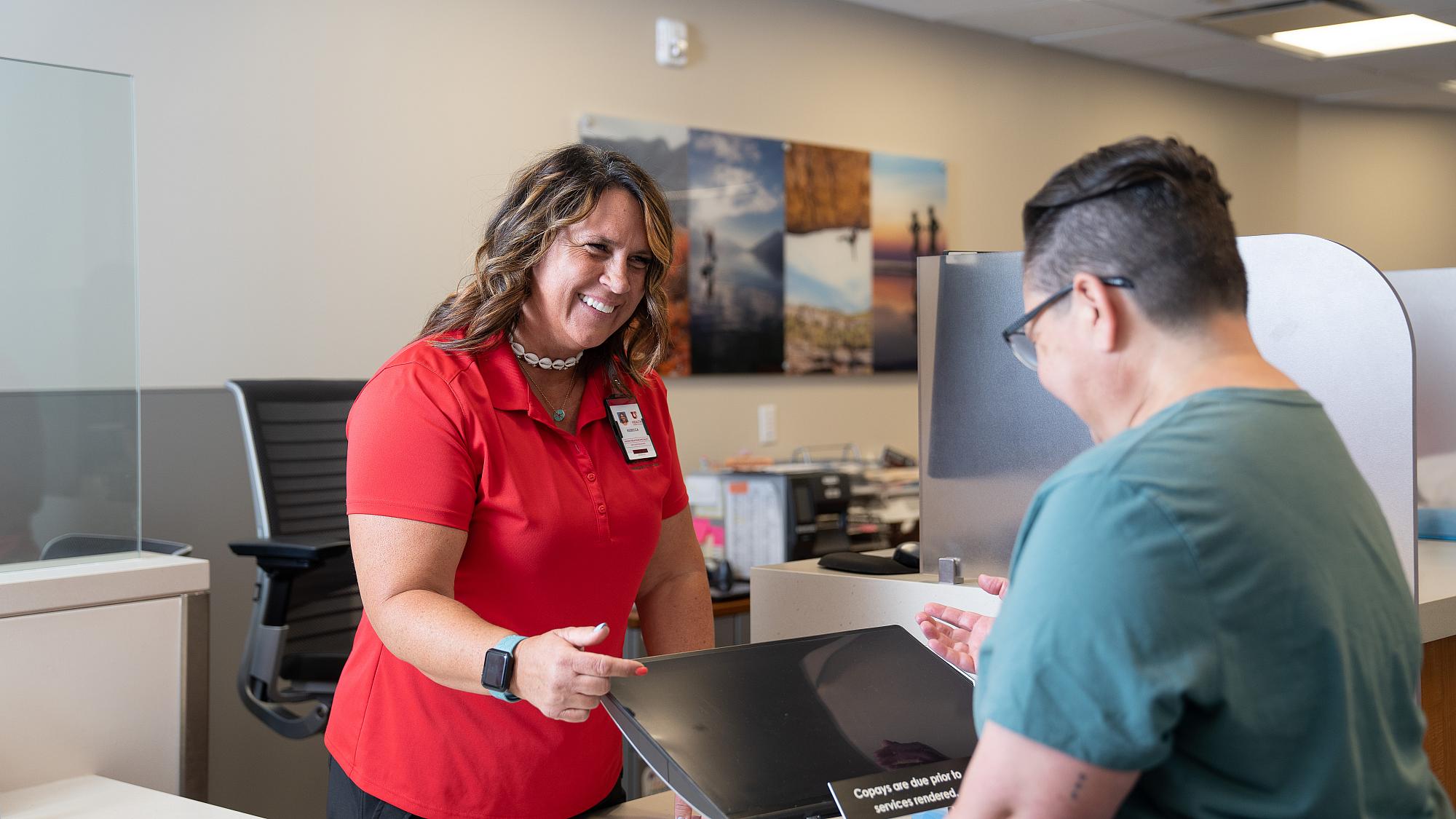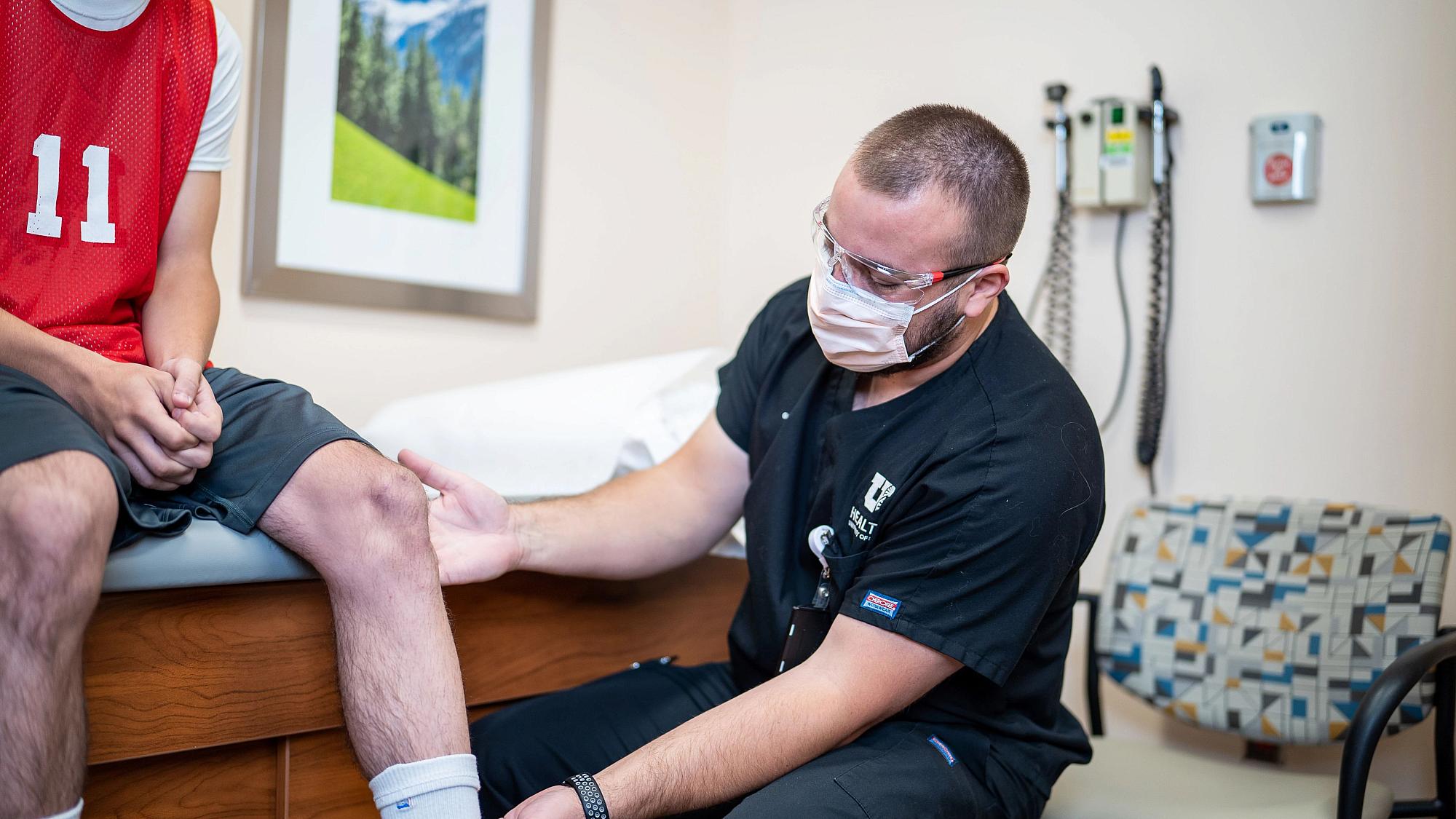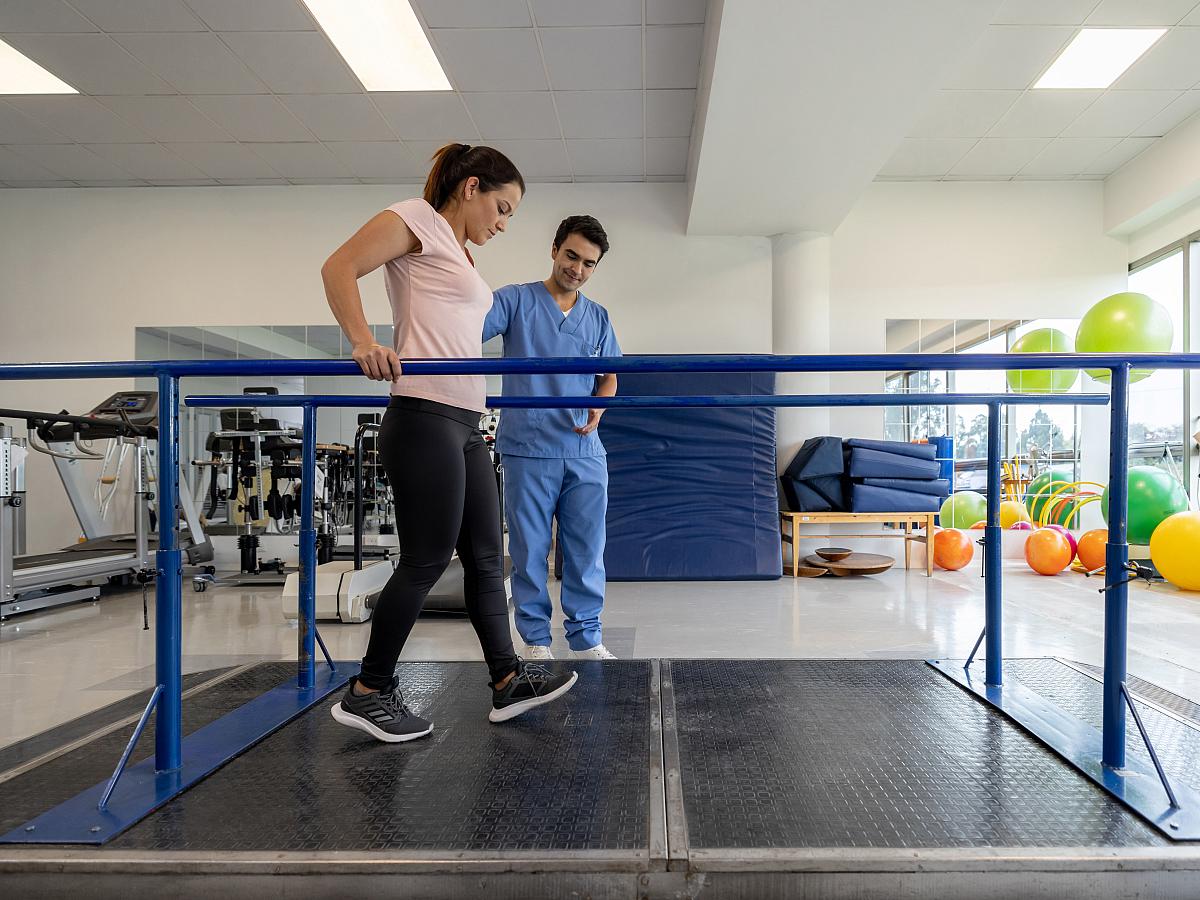
High-Quality Fracture & Traumatic Injury Care
University of Utah Health Orthopaedics has fellowship-trained orthopedic trauma surgeons with expertise in fracture care. We have a full-service Level 1 trauma center serving the Mountain West region. Our surgeons have extensive experience caring for all types of traumatic injuries and fractures. We also take referrals from orthopedic surgeons and providers throughout the region to treat more advanced or complex injuries.
Additionally, our surgeons are nationally recognized for research in fracture care and trauma surgery. We participate in some of the largest national clinical trials to:
- advance orthopedic fracture treatments,
- prevent issues with healing after traumatic injuries, and
- find innovative ways to improve surgery and healing.
Types of Fractures & Traumatic Injuries
We treat fractures and traumatic injuries in all areas of the body, except for the:
- spine,
- ribs, and
- hands.
Fractures can go in a straight line across the bone, spiral around the bone, or break into multiple pieces. Some require more complex care.
Malunion vs Nonunion Fractures
Malunion fractures are fractures that did not heal correctly, which doesn’t allow proper function or movement after the injury has healed. For example, a knee fracture that heals the wrong way will make it hard or painful to walk.
Nonunion fractures do not heal in the amount of time that would normally be expected for a specific injury. There are multiple reasons that a fracture might not heal and would be considered a nonunion fracture, including:
- infection,
- metabolic or endocrine (thyroid) issues, or
- fractures that were not fixed properly the first time.
Orthopedic Trauma & Fracture Treatment
We have several different methods for treating fractures and trauma. The specific treatment you need depends on how severe your injury is and other factors.
- Cast — We will make a cast out of plaster or fiberglass and wrap it around the injured area to keep it from moving while it heals.
- Brace — We will give you a removable hard cast that supports and protects your bones and joints from further injury.
- Splint — We will place a piece of hard plastic or fiberglass against the injured part of your body and wrap it with bandages to stabilize it so that it does not move. This is usually a temporary treatment to protect your injured limb until you get more permanent treatment, such as casting or surgery.
- Physical therapy — Not all fractures will need casting or surgery. Some can be treated with physical therapy. Our orthopedic surgeons and trauma specialists work closely with our physical therapists and refer patients for care.
- Surgery — Our surgeons perform operations to fix bones and joints when other non-surgical treatments are not adequate.
How Long Do Fractures Take to Heal?
Most bone fractures take between six weeks and three months to heal. Joint fractures take longer to heal than fractures that do not involve the joints. Our orthopedic surgeons will discuss how long they expect it will take for your injury to heal based on where it occurs and what treatments are necessary.
How to Prevent Fractures & Traumatic Injuries
Most fractures and orthopedic trauma injuries are the result of accidents or just bad luck. There are not many things that you can do to completely avoid these types of injuries, but you can take some steps to be careful in situations where they are more common.
- Avoid driving with distractions, such as texting, making phone calls, or eating.
- Understand and practice gun safety whenever you are around a firearm.
- Store guns unloaded and in a locked safe when you are not using them.
- Wear proper protective gear when playing sports or participating in recreation activities, such as riding a bike or skateboarding.
- Check your home to remove trip or fall hazards if you are at higher risk of falling.
Our Orthopedic Trauma & Fracture Specialists
Make an Appointment with an Orthopedic Specialist
Orthopedic fracture and trauma surgeons at U of U Health are available for appointments Monday through Friday, and members of the team are also on-call after hours and on weekends for emergencies.
Most patients can schedule an appointment to get in the same week. Since traumatic injuries and fractures can occur at any time without warning, we always keep spaces open for urgent and emergency appointments.
You do not need a referral to schedule an appointment. Call 801-587-7023. Physicians can also refer patients to see one of our orthopedic trauma and fracture surgeons using our online physician referral form.
Orthopedic fracture and trauma care is covered under most insurance plans. Contact your insurance carrier with questions about in-network providers or coverage.
Hear From Our Patients

Jack Moser was only 5 years old when he was run over by a recreational vehicle and seriously injured. Two years later, Jack has overcome serious challenges and is living an extraordinary life thanks to his care team at University of Utah Health and Intermountain Primary Children's Hospital.
What to Expect at Your Appointment and More About Orthopedic Doctors
What to Expect at an Orthopedic Appointment
Besides making sure your medical records are up to date, there are a few other things you can do to prepare. Find out what you can do and more about what happens at your first appointment with an orthopedic doctor.
What Does an Orthopedic Doctor Do?
Orthopedic doctors focus on caring for your bones, joints, ligaments, and tissues. But how exactly do they do that? Read more about the areas of the body that they specialize in and what this means for you.
Resources for Our Patients
What Does an Orthopedic Doctor Do?
If you play sports, are in your 40s or 50s, or have family and friends who are physically active, you’ve probably heard of the word "orthopedics.” But do you know what orthopedic doctors really do? And how do you know if you could benefit from seeing one?
Orthopedic Injury Clinic
At our Orthopedic Injury Clinic, you can get an appointment the day you call. Come to this clinic for fractures, dislocations, or other pains to your bones, joints, or muscles that won't go away.
When to See a Sports Medicine Doctor
Everyone has a body. To take care of it, you’ll need to stay active. But no matter how careful you are, at some point or another, you may injure yourself. Should you see a doctor right away? Or is it better to take it easy and wait for the injury to heal on its own?
What Is Physical Therapy?
Physical therapy helps you improve your function, range of motion, and overall quality of life. It can help speed up healing from an injury, reduce pain, and prevent injury. For some people, physical therapy can significantly delay the need for surgery or help avoid it altogether.











